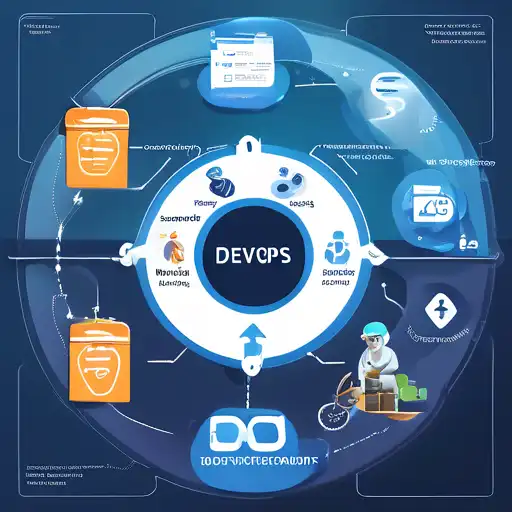Introduction to DevOps in Software Development
DevOps has revolutionized the way software is developed, deployed, and maintained. By bridging the gap between development and operations teams, DevOps practices ensure a smoother, more efficient software development lifecycle (SDLC). This article explores the multifaceted benefits of DevOps and how it enhances the SDLC.
The Core Benefits of DevOps
DevOps introduces a culture of collaboration and automation that significantly improves the SDLC. Here are some of the core benefits:
- Improved Collaboration: DevOps fosters a culture of shared responsibility, transparency, and faster feedback between development and operations teams.
- Increased Efficiency: Automation of repetitive tasks frees up time for developers to focus on more critical aspects of the project.
- Higher Quality Products: Continuous integration and continuous delivery (CI/CD) ensure that code changes are automatically tested and deployed, reducing the chances of errors.
- Faster Time to Market: By automating the deployment process, DevOps enables quicker releases, giving businesses a competitive edge.
DevOps Practices That Enhance the SDLC
Several DevOps practices are pivotal in enhancing the SDLC. These include:
Continuous Integration and Continuous Delivery (CI/CD)
CI/CD pipelines automate the software release process, from code integration to deployment. This not only speeds up the release cycle but also ensures that the software is always in a deployable state.
Infrastructure as Code (IaC)
IaC allows teams to manage infrastructure through code, making it easier to provision and manage resources. This practice enhances consistency and reduces manual errors.
Monitoring and Logging
Continuous monitoring and logging provide real-time insights into application performance, enabling teams to identify and resolve issues promptly.
Implementing DevOps in Your Organization
Adopting DevOps requires a cultural shift and the right set of tools. Start by fostering collaboration between teams, automating repetitive tasks, and integrating CI/CD pipelines into your development process. Tools like Docker, Kubernetes, and Jenkins can facilitate this transition.
Conclusion
DevOps is not just a set of practices but a culture that enhances the software development lifecycle. By improving collaboration, efficiency, and product quality, DevOps enables organizations to deliver better software faster. Embracing DevOps is essential for any organization looking to stay competitive in today's fast-paced digital world.
For more insights into optimizing your development process, explore our articles on continuous integration and automation in DevOps.
